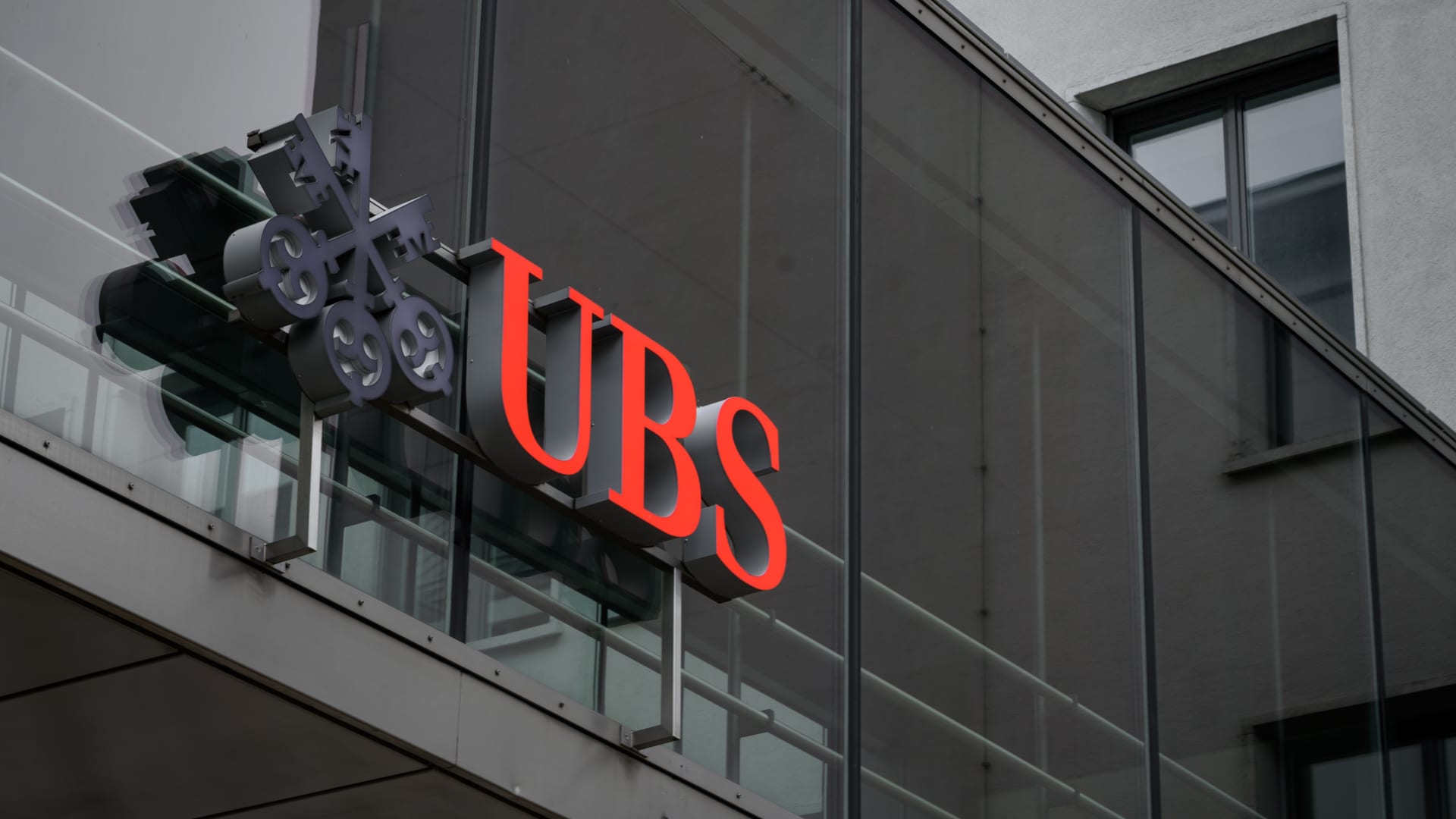
UBS has beat expectations for the first quarter of 2022 and said it has further reduced its exposure to Russia.
The Swiss bank on Tuesday reported net profit attributable to shareholders of $2.136 billion, above forecasts compiled by the bank of $1.79 billion.
It marks a 17% rise from the $1.82 reported for the same period of 2021 and follows a drop in quarterly net profit to $1.35 billion at the end of the year.
The bank has previously described its market risk exposure to Russia as “limited” and on Tuesday said it had reduced its exposure to $0.4 billion as of March 31, compared with $0.6 billion at the end of 2021.
In addition, it said it had no material exposure to Ukraine or Belarus, and that it is not conducting any new business in Russia or with Russia-based clients.
“Macroeconomic, geopolitical and market factors created a high level of uncertainty in the first quarter, with Russia’s invasion of Ukraine, COVID-related restrictions and lockdowns, higher volatility, the lower economic growth outlook, and concerns about higher inflation and the monetary policy response,” the bank said in a release Tuesday.
FABRICE COFFRINI | AFP | Getty Images
Speaking to CNBC’s Geoff Cutmore Tuesday, UBS CEO Ralph Hamers said: “It is pretty unpredictable out there.”
Here are some other key metrics for the quarter:
- Operating income came in at $9.36 billion, versus $8.71 billion a year ago.
- Return on tangible equity, a measure of profitability, stood at 16%, up from 14% a year ago.
- CET 1 ratio, a measure of bank solvency, was 14.3%, versus 15% at the end of 2021.
The company’s stock traded almost 2% higher shortly after markets opened in Europe.
The ECB is a ‘little bit late’
A key uncertainty on the horizon is how central banks will react to higher inflation — and this can have direct consequences on banks’ performance.
“The ECB will closely look at what the [U.S. Federal Reserve] is doing and the Fed is ahead of the ECB. But also, [it’s] a bit late, let’s be honest. So the ECB is a little bit late as well, because they don’t want to … be faster than the Fed,” Hamers told CNBC.
The European Central Bank has said it will end its asset purchases program in June, but has not yet given a precise timeline for when it might increase interest rates.
“We do expect that there will be a first hike in rates towards the end of the year on the ECB side,” Hamers said.
Another issue facing the European economy is whether the war in Ukraine will drag it into recession. European leaders have imposed tough sanctions on Russia and are considering further measures to punish the Kremlin, including a possible ban on oil imports.
When asked if oil and natural gas sanctions on Russia could pose a risk for Europe, Hamers said: “Of Russian oil not so much, of Russian gas that’s a different — a much bigger challenge and that is really because large part[s] of industries are dependent on gas as their base commodity to make their product … so that’s what could cause the second order effect specifically in the European economy.”




